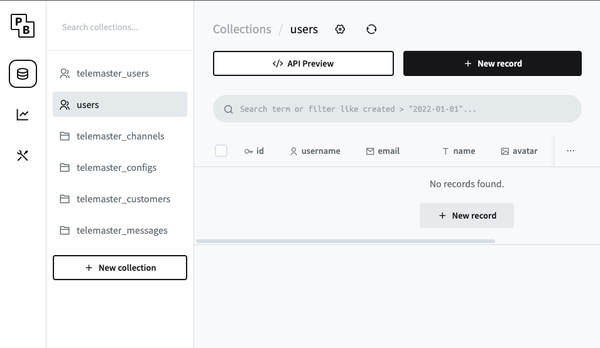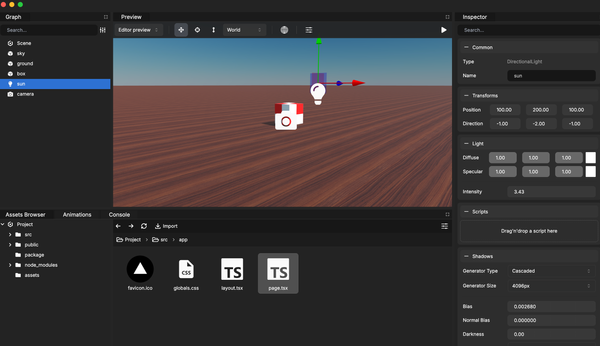Is It Time to Drop WordPress for Static Site Generators?
Table of Content
Is It Time to Drop WordPress for Static Site Generators?
WordPress has been a dominant force in the world of website creation since its inception in 2003.
Originating as a simple blogging platform, WordPress evolved into a full-fledged content management system (CMS), powering over 40% of the web.
Its popularity stems from its ease of use, extensive plugin ecosystem, and the flexibility to create anything from blogs to complex e-commerce sites.

WordPress Benefits
WordPress offers several benefits:
- Ease of Use: Its user-friendly interface allows non-technical users to manage content with minimal effort.
- Flexibility: The vast library of plugins and themes allows for extensive customization.
- Community Support: A large community of developers contributes to its ongoing development and provides support through forums and tutorials.
Security Challenges
However, the very features that make WordPress popular also present significant security risks:
- Plugin Vulnerabilities: With thousands of plugins available, many of which are developed by third parties, security vulnerabilities are a constant concern.
- Frequent Updates: To combat these vulnerabilities, WordPress and its plugins require frequent updates. Failure to update can leave sites exposed to attacks.
- Target for Hackers: As the most widely used CMS, WordPress is a prime target for hackers, resulting in numerous security breaches over the years.

Why It's Time to Change
The rise of Static Site Generators (SSGs) presents a compelling alternative to WordPress. SSGs, such as Jekyll, Hugo, and Gatsby, generate static HTML files from source code and content, offering several advantages:
- Enhanced Security: With no dynamic content and databases, the attack surface is significantly reduced, making SSGs inherently more secure.
- Performance: Static sites load faster since there’s no need to query a database or render content dynamically. This leads to improved user experience and better search engine rankings.
- Simplified Hosting: Static sites can be hosted on simple servers or even content delivery networks (CDNs), reducing hosting costs and complexity.
Challenges of the Switch
Switching from WordPress to an SSG is not without its challenges:
- Learning Curve: For those accustomed to WordPress, the transition to a code-based system can be daunting.
- Content Management: WordPress excels at managing large amounts of content through its user interface, whereas SSGs often require manual content management, which can be time-consuming.
- Dynamic Features: SSGs excel at serving static content, but adding dynamic features like user comments, search, and e-commerce can be more complex and require additional tools or services.

Decision Points for Agencies Considering a Switch to Static Site Generators
When deciding whether to switch from WordPress to a Static Site Generator (SSG), agencies should consider the following factors:
Project Complexity:
- Simple Sites: For basic websites, SSGs offer a lightweight, secure, and fast solution.
- Complex Sites: If your projects involve complex functionality like e-commerce, membership systems, or extensive user interactions, WordPress might still be more practical.
Team Expertise:
- Developer Skills: Evaluate whether your team has the necessary coding skills to manage an SSG-based workflow, including familiarity with tools like Git, command-line interfaces, and Markdown.
- Content Management: Assess if your content creators are comfortable managing content in a less intuitive, more code-centric environment.
Client Needs and Projects Requirements:
- Ease of Use: Consider your clients' ability to handle content updates. WordPress provides a straightforward interface, while SSGs often require technical knowledge.
- Client Involvement: For clients who prefer a hands-off approach, WordPress might still be preferable due to its user-friendly dashboard and extensive support ecosystem.
Security Requirements:
- High Security Needs: If your projects involve sensitive data or are frequently targeted by hackers, the security benefits of an SSG could be a major advantage.
- Compliance: Consider if the security model of an SSG aligns with any industry-specific compliance requirements (e.g., GDPR, HIPAA).
Performance Considerations:
- Site Speed: If performance and load times are critical, SSGs offer superior speed due to pre-rendered static files.
- Scalability: Evaluate how well your site needs to scale. SSGs can easily handle high traffic with minimal server resources, especially when hosted on a CDN.
Budget Constraints:
- Hosting Costs: SSGs generally require less expensive hosting compared to WordPress sites, especially when using CDNs or serverless platforms.
- Development Costs: Initial development on SSGs might be higher due to the need for custom development, but long-term maintenance costs could be lower.
SEO and Marketing Tools:
- SEO Capabilities: Ensure that the SSG supports necessary SEO features, such as meta tags, sitemaps, and structured data.
- Integration with Marketing Tools: Check the availability and compatibility of third-party marketing tools and analytics services.
Long-Term Maintenance:
- Update Frequency: SSGs require less frequent updates than WordPress, reducing long-term maintenance overhead.
- Plugin Management: Consider the ongoing need to manage and update plugins in WordPress versus the simplicity of a static site.
Content Delivery:
- Content Updates: Determine how frequently content will be updated. Static sites require a build process for each update, which might be less efficient for sites that change frequently.
- Global Reach: SSGs, when combined with CDNs, offer excellent global performance, making them ideal for sites targeting international audiences.
Migration Complexity:
- Data Transfer: Assess the difficulty of migrating existing WordPress content, including posts, pages, media, and custom post types, to an SSG.
- Preserving Functionality: Consider how to replicate or replace WordPress-specific features, such as forms, comments, and search, within an SSG framework.
These considerations can help agencies make an informed decision about whether to transition from WordPress to Static Site Generators based on their specific project requirements and long-term goals.
Final Thoughts
While WordPress remains a powerful and flexible platform, the growing need for security, performance, and simplicity makes Static Site Generators an attractive alternative.
However, the decision to switch should be weighed carefully, considering the specific needs of your site and the potential challenges involved in the transition.












